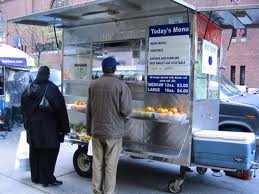Chloe Stirling, an 11-year old from Madison County, dreams of one day running her own bakery. Starting at such a young age, the sky is the limit for her baking dreams. And if state and local regulators have their way, that bakery will, according to the Illinois Policy Institute, not be in Illinois.
“Hey, Cupcake!” is Chloe’s first start at a business, and she did well enough to earn $80 a week. But Chloe has been shut down by county regulators for violating onerous rules that  require an 11-year old baker to finance a brand new and dedicated kitchen.
require an 11-year old baker to finance a brand new and dedicated kitchen.
According to Illinois state law, food business run from home can’t be run out of a home kitchen. For an 11-year-old to start toward her dream in Illinois, she needs to overcome piles of regulations. A completely separate kitchen must be set up and outfitted with mandated equipment and supplies. It must then be inspected and issued a permit. It’s not enough for the family’s home kitchen to be inspected and permitted; they must build another kitchen.

 afternoon were less likely to have become ill. Food testing is being conducted and it is expected to be several days before all results are known.
afternoon were less likely to have become ill. Food testing is being conducted and it is expected to be several days before all results are known. snack — explained Capt. Brian Mullen, commanding officer of the 33rd Precinct.
snack — explained Capt. Brian Mullen, commanding officer of the 33rd Precinct..jpg) The Dallas Morning News reports this morning
The Dallas Morning News reports this morning.jpg) tortillas, high-sugar pies and pastries, high-sugar jam and jellies, dry mixes (made from commercial ingredients), candy and fudge. Those foods do not support the rapid and progressive growth of infectious and toxicogenic microorganisms, including Clostridium botulinium, responsible for foodborne disease.
tortillas, high-sugar pies and pastries, high-sugar jam and jellies, dry mixes (made from commercial ingredients), candy and fudge. Those foods do not support the rapid and progressive growth of infectious and toxicogenic microorganisms, including Clostridium botulinium, responsible for foodborne disease.